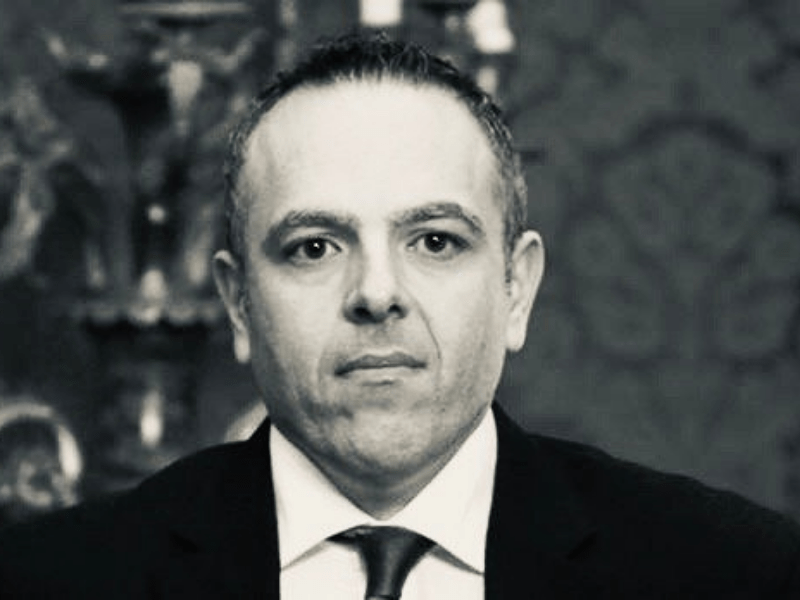The trickle of information over the past week on the alleged money laundering and bribery case primarily involving former Chief of Staff Keith Schembri and Nexia BT’s Brian Tonna has intensified questions on what is going on and what we can expect.
The police investigation, and Schembri’s 20-hour stint in the lock up, has dominated news headlines. Although it hardly needs repeating that it revolves around an alleged €100,000 kickback from Tonna to Schembri following the sale of passports, we don’t know if other things have also been discovered in the course of the investigation.
The probe could well be wider than we assume.
According to the police commissioner, the police moved to arrest Schembri and another three individuals (reportedly Tonna and two accountants employed by his firm) in the middle of the night following the leak of last Monday’s court order which froze their assets. The commissioner added that the arrests were followed by a search in unspecified properties and seizure of documents.
This means the police may have gotten wind of movements that precipitated the swoop, or that they decided to spring into action preemptively. It is now clear that arrests and interrogations, if any, did not clinch the case and never intended to do so; and that the arrests and searches were carried out for more limited objectives or preservation of certain evidence, as the police commissioner indicated.
If we had to take stock of the events of the past week, the starting point would be the three-year magisterial inquiry, which prepared much of the groundwork of the case. Then, last week’s court order was intended to give the police a mine of information by ordering all financial institutions to provide detailed accounts of the “nature and provenance” of all assets or property, as well as funds, held by the suspects.
It is understood that three police inspectors are now sifting through this mine of information, looking for connections and patterns that would enable them to add the final building blocks to the investigation.
The commissioner also let out that the suspects are being investigated for bribery and money laundering, which fall under separate laws.
Bribery falls under the criminal code. For a conviction, the prosecution would have to provide proof and intent that excludes any other plausible alternative explanation.
With money laundering, although the prosecution would still have to prove its case, the onus would then fall on the accused to disprove the prosecution’s case and the court would decide on the balance of probabilities.
These rules usually apply to a range of civil lawsuits, but they have been put into play to some extent in money laundering cases. (More advanced democracies are now going a step further with a new law in which inability to prove a legitimate source of funds would in itself be an offence.)
Given this standard, sources believe that the police probably already have sufficient evidence in hand to mount a case on money laundering.
All parties are aware of the events surrounding the investigation, and knives are being sharpened for the upcoming battle.
Schembri’s lawyers have already been requesting conclusions of the magisterial inquiry as well as other “material” the police had in the case.
There is still much debate among criminal law sources about whether those arrested have a right for the conclusions of a magisterial inquiry, even a part of the conclusions, as well as the extent of “material” that has to be divulged, something that remains untested in higher courts.
Criminal lawyers have been pushing for full disclosure, arguing that the lawyer has to see all evidence pertaining to the arrest to be able to advise the client prior to interrogation. They argue that access to all evidence is a logical predicate of the right to consult a lawyer.
Yet the law is more vaguely defined – merely specifying that the arrested has to be given information that would enable him to challenge the legitimacy of his arrest – and senior legal sources maintain that the individual arrested does not have a right to all material of the case against him.
The sources point out that in the Maltese criminal prosecution system the evidence is presented at the stage of the compilation of evidence – the logic is that the evidence handed at the point of arrest would be more limited.
In any case, amid this confusion, and particularly because the contentions have not been tested in the constitutional court yet, an accused might see a chance for a constitutional challenge on lack of fair hearing.
There has also been confusion in the past week on what the police can divulge about the case. Questions abound on why the police are being so uncommunicative in a case of great national interest.
There are two considerations here. First, the Police Act precludes the police from divulging the identity of any person arrested or investigated. Second, in some investigations such as this one, any information given by the police could jeopardise the investigation or any eventual prosecution.
Overall, given what has been published in the media about this case over the years, it appears that the police have nearly enough – if not enough – material to press charges, at least on money laundering.
This does not mean an early move is justified. On the contrary, any case has to be put together as comprehensively as possible, although in complex cases such as this one the investigating team would have to make a judgement to wrap up the investigation at some point even if the hunt for evidence would not have been fully exhausted.
At the moment, given the prolific financial circuit and the number of companies, as well as the information presumably yielded by the court order, the investigators are somewhere in the thick of it, possibly inundated.












